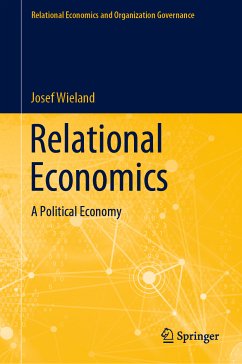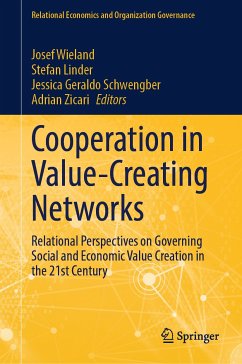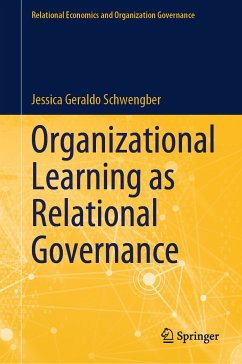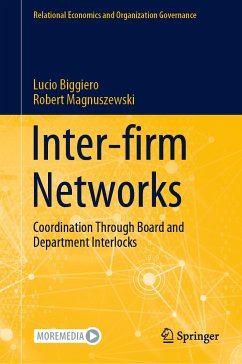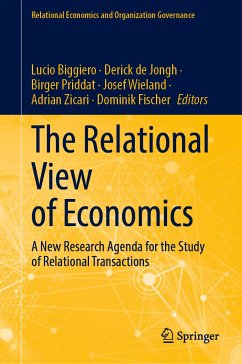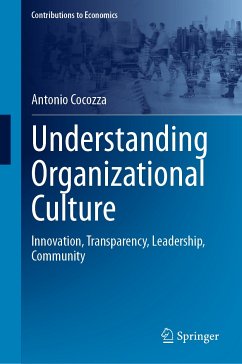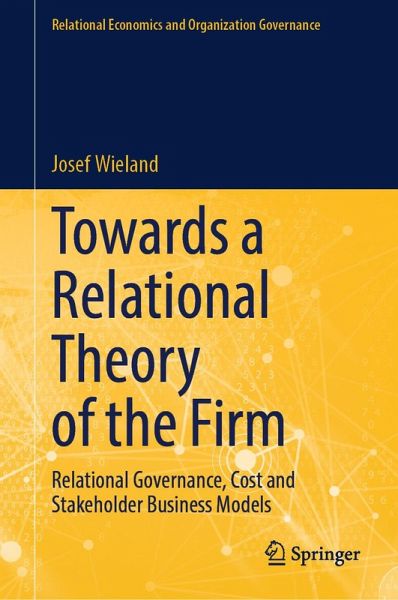
Towards a Relational Theory of the Firm (eBook, PDF)
Relational Governance, Cost and Stakeholder Business Models

PAYBACK Punkte
44 °P sammeln!
This book lays the groundwork for a relational theory of the firm as a network of stakeholder resources and interests. Drawing on the author's earlier publications on relational economics as the political economy of a global cooperative economy or stakeholder capitalism, it explores the governance and managerial implications of a relational economy for firms, while also critically revisiting the traditional and resource-based view of the firm. In turn, it explains concepts such as relational governance, relational costs, relational spaces, rent from cooperation, and shared value creation, as w...
This book lays the groundwork for a relational theory of the firm as a network of stakeholder resources and interests. Drawing on the author's earlier publications on relational economics as the political economy of a global cooperative economy or stakeholder capitalism, it explores the governance and managerial implications of a relational economy for firms, while also critically revisiting the traditional and resource-based view of the firm. In turn, it explains concepts such as relational governance, relational costs, relational spaces, rent from cooperation, and shared value creation, as well as a dynamic and process-oriented relational business model. The book discusses the epistemological and methodological prerequisites of a relational theory of the firm and addresses their theoretical taxonomy. A relational theory of the firm is a work in progress; the book represents an invitation to join this theoretical and empirical undertaking.
Dieser Download kann aus rechtlichen Gründen nur mit Rechnungsadresse in A, B, BG, CY, CZ, D, DK, EW, E, FIN, F, GR, HR, H, IRL, I, LT, L, LR, M, NL, PL, P, R, S, SLO, SK ausgeliefert werden.



